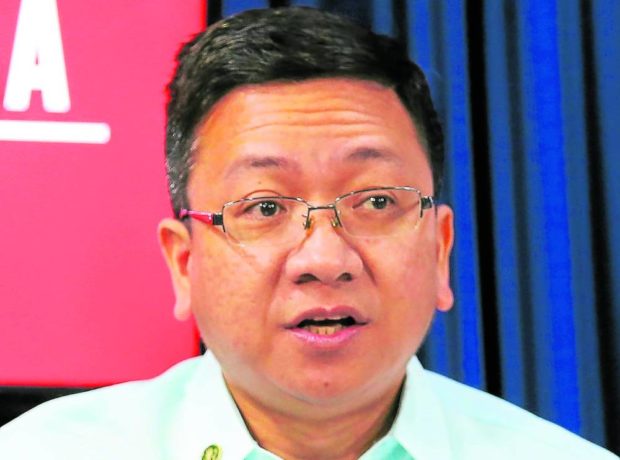
FILE PHOTO: Interior Undersecretary Jonathan Malaya. INQUIRER FILES
MANILA, Philippines — The incoming administration should continue the Duterte administration’s campaign against illegal drugs, “communist terrorism,” and criminality.
This was the suggestion of Interior Undersecretary Jonathan Malaya, who expressed worry that drug addicts and pushers might return to the streets after the term of President Rodrigo Duterte.
“Para po sa amin sa DILG, sana mapatuloy ‘yung war on drugs, kasi marami sa ating mga kababayan ay nababahala sa ngayon na baka [kapag] nawala na ang Pangulong Duterte sa Malacañang, magsibalikan naman ang mga drug addicts at mga drug pushers sa kanto, so we are hoping that the next incoming administration ay mapatuloy ito,” Malaya said in an interview with GMA News’ Balitanghali on Thursday.
The official of the Department of Interior and Local Government (DILG) also asserted that the Duterte administration made significant “accomplishments” in combatting terrorism, claiming that many barangays were “recovered” from the New People’s Army in the last six years.
“Under the umbrella of the National Task Force-ELCAC, sana po ay tuloy-tuloy ang partisipasyon ng DILG dito para masiwata na itong malaking problema na ito…Iyong sa criminality naman kasi malaki ‘yung pagbaba ng krimen mula nang pumasok si Pangulong Duterte – almost 50% – and I hope ma-sustain ‘yan ng incoming administration,” Malaya said.
The International Criminal Court in September 2021 criticized the Philippine government’s “drug war”, stating that it “cannot be seen as a legitimate law enforcement operation and the killings neither as legitimate nor as mere excesses in an otherwise legitimate operation.” According to its pre-trial chamber, there has been “a widespread and systematic attack against the civilian population” as part of a state policy.
This claim followed the Department of Justice’s admission before the United Nations Human Rights Council that half of the anti-drug operations reviewed by the agency “failed to follow standard protocols pertaining to coordination with other agencies and the processing of the crime scene.”
READ: Guevarra: Irregularities seen in more than half of anti-drug police operations
The Duterte administration’s fight against terrorism. meanwhile, has intensified so-called red-tagging by government agents, including military officials, as well as the profiling of personalities, including health workers, campaign volunteers, and community pantry organizers.
Duterte also signed the controversial Anti-Terror Law in 2020 to push back against terrorism, but many lawyers’ groups, human rights advocates, and lawmakers have opposed this move, worrying that the measure may be used as a state weapon against dissent.
RELATED STORIES
Police protocols not followed in many drug war cases under review — DOJ
In bid to make PH safe, killings become norm